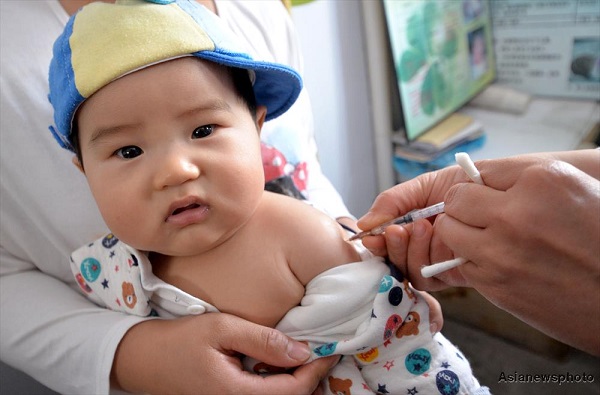Bitter Pill: China’s Scandal Ridden Healthcare
July 23, 2018 | Expert Insights

Chinese censors deleted articles and postings about the vaccine industry as an online outcry over the country's vaccine scandal intensified, undermining Chinese ambitions to play a larger role in the global pharmaceutical space.
Recently, Changsheng Biotechnology Co had violated standards in making at least 250,000 doses of vaccine for rabies by fabricating data.
Background
Traditional Chinese Medicine (TCM), including herbal medicine, acupuncture, massage (tui na), exercise (qigong), and dietary therapy, has been practiced for years. One way the Chinese may have practiced inoculation (also known as variolation) was by scratching matter from a smallpox sore into a healthy person's arm. Evidence-based medicine made its way to China beginning in the 19th Century.
When the Communist Party took over in 1949, health care was nationalized. A national "patriotic health campaign" attempted to address basic health and hygiene education, and basic primary care was dispatched to rural areas through barefoot doctors and other state-sponsored programs. Urban health care was also streamlined. However, beginning with economic reforms in 1978, health standards in China began to diverge significantly between urban and rural areas, and between coastal and interior provinces.
Currently, China has also become a major market for health-related multinational companies. China has also become a growing hub for health care research and development.
Healthcare consists of both public and private medical institutions and insurance programs. About 95% of the population has at least basic health insurance coverage. Despite this, public health insurance generally only covers about half of medical costs, with the proportion lower for serious or chronic illnesses. Under the "Healthy China 2020" initiative, China is currently undertaking an effort to cut healthcare costs, and the government requires that insurance will cover 70% of costs by the end of 2018.
In 2016, Chinese police busted a gang for selling around $90 million worth of illegal vaccines, many of which were expired, on the black market.
Analysis
According to the China Food and Drug Administration, Changsheng fabricated production records as well as product inspection records, and arbitrarily changed process parameters and equipment, in “serious violations” of the law.
Shares in Chinese vaccine makers and biotech firms fell across the board after Premier Li Keqiang lambasted Changsheng Biotechnology Co for having crossed a moral red line. Keqiang added that authorities “will resolutely crack down on illegal and criminal acts that endanger the safety of peoples’ lives, resolutely punish lawbreakers according to the law, and resolutely and severely criticize dereliction of duty in supervision,”
While there have been no known reports of people being harmed by the vaccine, official regulators ordered Changsheng to halt production and recall the product after the scandal emerged earlier this month. Provincial authorities said the defective DPT vaccine might not confer immunity, but would not affect safety.
“Yesterday it was milk powder, today vaccines. What will it be tomorrow?” wrote one user on Chinese social media Weibo, referring to a major scandal in 2008 when six children died and 300,000 fell ill after industrial chemical melamine was added to milk powder to raise protein levels.
The human rabies vaccine manufacturing warning in China may now include recalls of diphtheria, pertussis, and tetanus (DPT) vaccines and various heart medications, after Jilin province officials found them to be substandard. The CFDA said last week that the problematic rabies vaccine had not left Changsheng's factory.
The market for pharmaceuticals saw widespread fall in trading after the news broke out. Changsheng, which suspended trading in its shares, saw their value drop by 10% on the day. The shares have slumped 47% since mid-July. The company has now been ordered to pay a fine of 3.4m yuan ($510,000) Despite the increased number of hospitals, China’s health care system is still overburdened and struggles to cope with the rise in disease, especially as pollution levels sky-rocket. Health care services sector is facing a shortage of supply due to long-term insufficient investment, uneven distribution of medical resources in different provinces, and a significant shortage of nurses, causing low-quality service. Thus, reform of this sector through the “Healthy China 2020” policy is absolutely necessary.
Assessment
Our assessment is that as the faulty vaccination does not affect the health of children, parents should take steps to vaccinate their wards again. We believe that regulatory authorities in China ought to take stringent measures to limit the sale of low-quality products. We feel that foreign investment in Chinese healthcare sector can be expected to drop significantly.








Comments